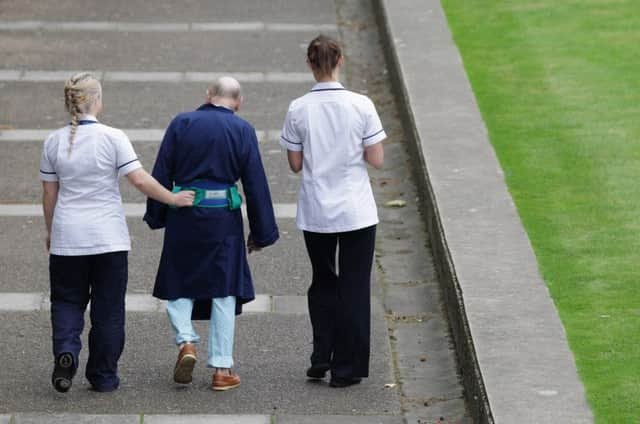Best care for elderly easier with co-ordination


There has never been a better time to ensure that the hospital care that older people receive is the best it can possibly be.
With our population living longer and the number of older people in our society increasing, it’s the right time to articulate the high level of care that we expect our hospitals to deliver, and the new set of standards published this week by Healthcare Improvement Scotland do exactly that.
Advertisement
Hide AdAdvertisement
Hide AdAt the centre of the standards is the strengthening of the involvement of patients and carers in discussions and decisions about the care that they receive. Older people must have the opportunity to say what is important to them and be involved in decisions about their care – all the while being treated with dignity and respect.
But the standards are not just there for the clinical community – they detail what patients, their representatives and the public can expect of healthcare services in Scotland in caring for them or their loved ones as they get older.
An encouraging sign that society understands the importance of care for the elderly is that we received 1,345 responses when we publicly consulted on the draft standards.
Moreover, we were assisted by the Royal College of Nursing Scotland, the Royal College of Psychiatrists, Alzheimer Scotland, Carers Scotland, Age Scotland, and many other people and organisations who all brought their important perspectives to the table.
As chair of the project group that developed these standards and as a consultant doctor in geriatric medicine, I’m delighted to see the standards also cover the management of frailty, assessment of cognitive function, effective discharge planning and a standard to ensure that older people are cared for in the right place at the right time, not to mention medicines management and depression. All these areas are important and highlight key areas of the pathway of care that older people can take within our hospitals – and in getting back into the community.
I’m also encouraged by national improvement programmes, such as Healthcare Improvement Scotland’s groundbreaking work on frailty and delirium management, and the standards will further strengthen this work.
I recall Nicola Sturgeon saying that “quality, compassionate care for older people that protects their dignity and independence, is one of the most sacred duties of any civilised society”.
The new standards are another important piece in the puzzle to ensure that we achieve that, for every patient every time.
Advertisement
Hide AdAdvertisement
Hide AdNHS boards in Scotland are now expected to work towards meeting these standards and, in time, they will be used to support future hospital inspections of the care of older people carried out by Healthcare Improvement Scotland. It’s all part of a co-ordinated picture that will ensure that older people get the care they need, and that NHS staff have the knowledge, skills and information to meet those needs. This important duty is in safer and stronger hands.
• Dr Christine McAlpine, Consultant in Medicine for the Elderly and Chair of Healthcare Improvement Scotland’s Older People in Hospital Standards Project Group
SEE ALSO